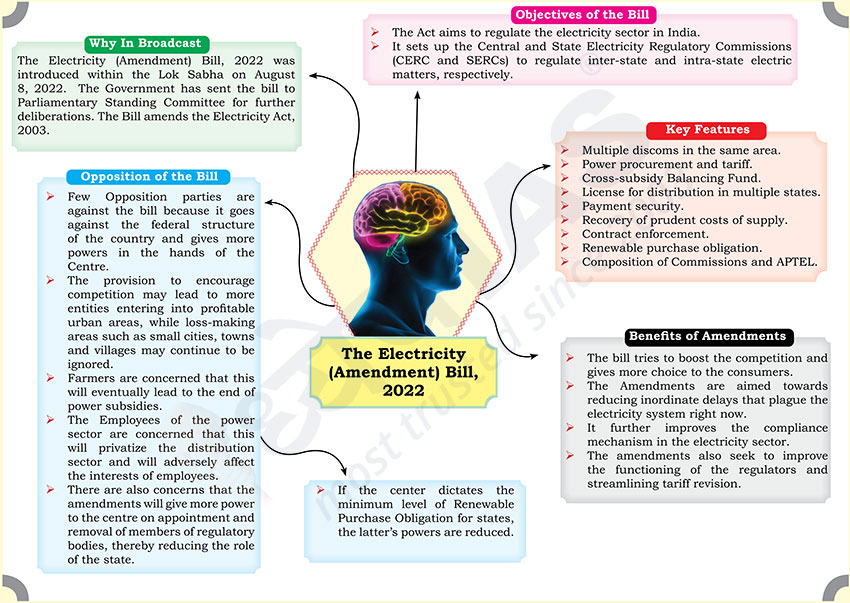Brain-booster /
21 May 2023
Brain Booster for UPSC & State PCS Examination (Topic: The Electricity (Amendment) Bill, 2022)

Why in Broadcast?
- The Electricity (Amendment) Bill, 2022 was introduced within the Lok
Sabha on August 8, 2022. The Government has sent the bill to Parliamentary
Standing Committee for further deliberations. The Bill amends the
Electricity Act, 2003.
Objectives of the Bill
- The Act aims to regulate the electricity sector in India.
- It sets up the Central and State Electricity Regulatory Commissions (CERC
and SERCs) to regulate inter-state and intra-state electric matters,
respectively.
Key Features
- Multiple discoms in the same area.
- Power procurement and tariff.
- Cross-subsidy Balancing Fund.
- License for distribution in multiple states.
- Payment security.
- Recovery of prudent costs of supply.
- Contract enforcement.
- Renewable purchase obligation.
- Composition of Commissions and APTEL.
Benefits of Amendments
- The bill tries to boost the competition and gives more choice to the
consumers.
- The Amendments are aimed towards reducing inordinate delays that plague
the electricity system right now.
- It further improves the compliance mechanism in the electricity sector.
- The amendments also seek to improve the functioning of the regulators
and streamlining tariff revision.
Opposition of the Bill
- Few Opposition parties are against the bill because it goes against the
federal structure of the country and gives more powers in the hands of the
Centre.
- The provision to encourage competition may lead to more entities
entering into profitable urban areas, while loss-making areas such as small
cities, towns and villages may continue to be ignored.
- Farmers are concerned that this will eventually lead to the end of power
subsidies.
- The Employees of the power sector are concerned that this will privatize
the distribution sector and will adversely affect the interests of
employees.
- There are also concerns that the amendments will give more power to the
centre on appointment and removal of members of regulatory bodies, thereby
reducing the role of the state.
- If the center dictates the minimum level of Renewable Purchase
Obligation for states, the latter’s powers are reduced.








